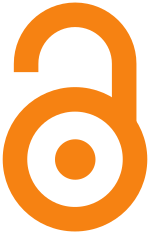With the exponentially rising costs of scholarly journals there's been an ongoing debate about merits of publishing in open access journals. What does "open access" mean? According to Open Access Week, open access (OA) means "the free, immediate, online access to the results of scholarly research,
and the right to use and re-use those results as you need" (http://www.openaccessweek.org/page/about, accessed 10/1/2012).
Researchers and scholars have a tradition of being wary, even disdainful, of internet-based resources and for good reasons! The web was intentionally designed to allow ease of access and to allow anyone to post information. This abundance of voices led to more information being posted that was not verified by a community of knowledgeable scholars and a lot of false or questionable information being broadcast over the internet. Even when information was accurate, key pieces of information might be missing that could lead to incorrect conclusions (see this recent article from the BBC of a colossal misreading of information from a reliable website: "North Sea Cod: Is it True There are Only 100 Left?"). Given the misleading nature of web-based resources, scholarship continued to rest in subscription-based peer-reviewed journals.
A variety of circumstances, however, (an increase in web-based research, a growing sense of content limitation in the existing journals, extensive costs to start a new fee-based journal, a desire to make scholarly research accessible to everyone, to name a few) have led to the rapid ascension of peer-reviewed open access journals. The review process for many of these open access journals is just as rigorous as it is for fee-based journals but places the research at the fingertips of anyone with an internet connection at no additional cost. The question that now confronts the scholarly community, and particularly the publishing community, is that of academic authority and the unspoken role publishers play in transmitting that authority to a journal and the articles it publishes. How have publisher's shaped this concept of academic authority? Should they have a continued role in this sense of academic truth? If so, what shape should this role take? If not, then where does scholarly publishing go from here? How are accuracy, authenticity, and honesty maintained in an open access setting?
Check out some of the open access music journals listed on the Music Research Guide and share your thoughts on the subject.
Monday, October 1, 2012
Subscribe to:
Posts (Atom)





